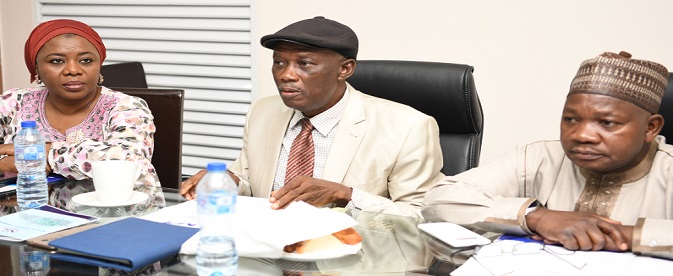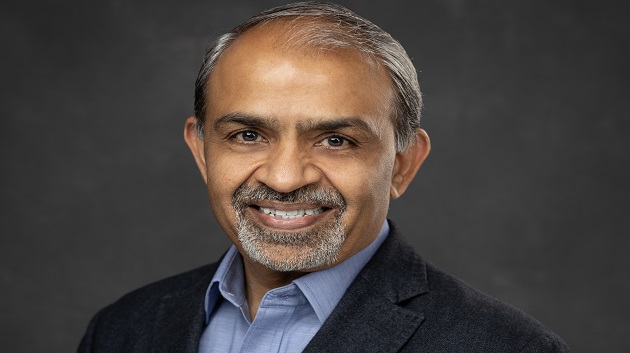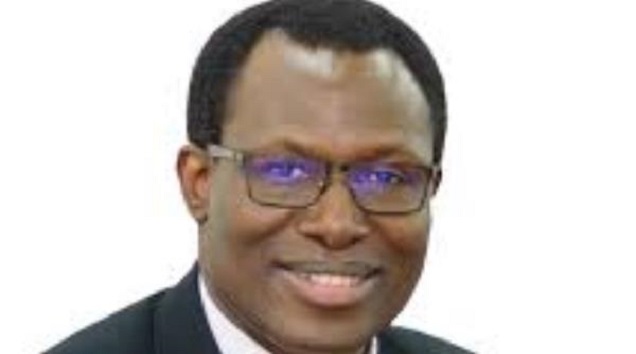Telecom
ICAF Says NCC, Operators Need Stakeholders’ Support for Improved QoS

Industry Consumer Advisory Forum (ICAF) has advocated the need for stakeholders at the federal, state and local levels, both in public and private sectors, to work with the Nigerian Communications Commission (NCC) and Mobile Network Operators (MNOs) to collectively contribute towards improving the Quality of Service (QoS) delivery by MNOs in the country.

L-R: Hafsat Lawal, Head, Consumer Protection and Policy Development, Nigerian Communications Commission (NCC); Igho Majemite, Chairman, Industry Consuemr Advisory Forum (ICAF) and Aliyu Ibrahim, Head, Consumer Protection and Advocacy, NCC, during the ICAF first quarter meeting in Abuja.
The advocacy group stated this during a presentation made at its first quarter 2020 meeting held in Abuja.
At every meeting of ICAF, a corporate member is required to make a presentation about a topical issue in the sector.
At this meeting, the Association of Licensed Telecoms Operators of Nigeria (ALTON) made the presentation focused on challenges of quality of service delivery in telecoms sector.
In the presentation, ICAF noted that the challenge of poor QoS in the telecom industry is an issue that requires collaborative efforts of the National Assembly as well as state and local governments, to tackle.
Explaining further, ICAF stated that the collaboration is both urgent and necessary because telecoms has long migrated from being a mere enabler of communication, to an industry that has become widely acknowledged as being the most important enabler of socio-economic activities in contemporary society.
The advocacy body said as with every other sector of the economy, the telecommunications sector has its own peculiar challenges that impact on the ability of telecoms operators to deliver seamless services to customers.
ICAF listed the challenges to include infrastructure damage, bombed sites due to insurgent activities, illegal site lock-outs, unstable power supply and prolonged power outage, denial of statutory permits for infrastructure roll-out, high cost of Right of Way (RoW), and use of substandard devices by the consumers, among others.
Elaborating further, ICAF presentation indexed a situation where telecommunications operators continue to suffer various forms of infrastructure damage across the country, and noted that such a challenge usually leads to sudden outages or poor QoS.
ICAF recalled that at the onset of the insurgency in the North-East region, operators were also at the receiving end of the destruction that was visited on the infrastructure in the region. He cited Adamawa, Borno and Yobe states as areas where hundreds of BTS sites were either bombed or affected due to dependence on a bombed site. Such vandalism resulted in loss of coverage in so many places including Dikwa, Gamboru, Monguno, Bama, Konduga and Damaturu.
“Operators have been able to restore a lot of these sites, while restoration at other facilities are still pending due to security concerns. In some cases those that were restored have been bombed again, but efforts are currently ongoing in collaboration with agencies in the security services and state governments, to secure sites,” ICAF noted in the presentation. It also assured participants that “with these efforts it is hoped that there will be noticeable improvement in coverage, leading to reduced dropped calls in the affected areas.”
The presentation further explained that the failure of some governmental authorities and their subsidiary agencies to grant the statutory approvals required by operators to build more sites is another problem. ICAF affirmed that “as the existing infrastructure get to full capacity, operators need to build more facilities to accommodate excess call, SMS, data and Unstructured Supplementary Service Data (USSD) traffic. Unfortunately, in the past seven years, the FCT Administration, in particular, has not granted approvals for telecommunications sites to be built in the Territory.”
On vandalism and theft, the ICAF presentation observed that this has been a recurring experience of the operators as unknown hoodlums increasingly break into sites, kill or injure the guard on duty and cart away valuable equipment such as the power generating sets, base transceiver station (BTS) equipment and air conditioners among other facilities. It said these criminal activities immediately lead to network outages in the area covered by facilities that suffered vandalism.
ICAF, however, noted that no operator desires to have poor service delivery because of the increased competition that has been engendered by the telecoms regulator.
According to ICAF, “we are in a highly competitive market, where we have multiple players and we should understand that there is no operator that wants to have downtime on its network as that can lead to loss of subscribers to rival operators. The NCC has heightened this with the introduction of the Mobile Number Portability, which makes it easier for a subscriber that is not satisfied with his or current network in terms of service delivery to migrate to other preferred network.”
The presentation further said: “This means if there is any challenge that is affecting any operator’s ability to deliver better experience to its numerous customers, the logical thing is for that operator to take steps to address the challenge so that it will be able to retain its customers. But most of these challenges are far beyond what operators can control. The NCC has been doing a lot to get the buy-in of all relevant stakeholders to address some these challenges, but not much inroad has been recorded because not all stakeholders in the ecosystem are fully supporting the regulator’s efforts at addressing these issues in order to ensure that telecom consumers get top-notched services.”
Proffering solutions to the challenges, ICAF said while the regulator has been taking QoS measurements and sanctioning the erring operators, it must also be acknowledged that it has been making efforts toward addressing all the identified challenges faced by the operators in order to improve service delivery on the networks to telecoms consumers.
“However, if we all agree that telecoms is central to our socio-economic development, then the NCC’s efforts need to be supported by all stakeholders, especially the National Assembly through the passage of the Critical National Infrastructure (CNI) Bill and; we at ICAF also urge the state governors to be considerate about policy measures in order to encourage massive deployment of telecoms infrastructure in their states, as being championed by the NCC,” the advocacy group recommended in the presentation.
Telecom
WhatsApp to Start Showing more Adverts in Messaging App

WhatsApp is launching three new ad features in a global roll-out across the messaging app.

The Meta-owned platform said the new ads will not be shown in the same place as people’s private chats, nor will the contents of their messages – which are encrypted – be used to decide which ads to display.
WhatsApp will instead use the country, city and language of the user, as well as how they interact with other ads and which channels they follow, to drive suggested content.
But people who have chosen to link their WhatsApp account to Facebook or Instagram will see more personalised ads.
The new ad features will appear in a section called Updates, which is a separate tab at the bottom of the app.
WhatsApp claims to have 1.5 billion users globally.
Businesses with channels will be able to choose to promote ads in the Updates section to attract new followers, and also charge a subscription to access extra content.
WhatsApp will eventually take a 10% commission of that fee, and there may also be extra costs on top of that taken at the app store level depending on the size of the business.
Firms will also be able to advertise in the form of a status update, which looks similar to an Instagram story and will link through to start a chat if clicked on.
Social media expert Matt Navarra told reporter that Meta is “laying the foundation for WhatsApp to finally become a monetisable platform at scale”.
But “monetising the periphery” of WhatsApp, while keeping personal chats private, would not be without risk for the company, he added.
This could particularly be the case in markets like the UK and Europe, he said, where the app is viewed primarily as a messaging tool with less appetite for content feeds or adverts.
“Any perception that the app is becoming noisy or Facebook-ified will spark backlash,” he said.
How does WhatsApp make money?
‘Natural extension’
It’s no coincidence that the new features bring WhatsApp more in line with Meta’s other platforms Facebook and Instagram.
“Obviously there’s overlap,” said WhatsApp boss Will Cathcart.
“We have stories on Instagram and stories on WhatsApp, and we now have a way for businesses to promote themselves in both, and we think that’s a good thing.”
He said he believed the move was a “natural extension of messaging services” and not dissimilar to features of rival apps such as Snapchat and Telegram.
For Mr Navarra, it also reflects a wider shift in the social media landscape.
“The feed is dying, public sharing is down, people are retreating into DMs and Stories in small groups,” he said.
“Meta’s trying to turn WhatsApp into a platform without users realising it and if they move too fast or it starts to feel like another ad network, people might disengage or maybe worse, distrust the app.”
Telecom
Airtel Africa Reinforces Commitment to ESG Impact while Advancing Digital, Financial Inclusion Across 14 Markets

Airtel Africa, a provider of telecommunications and mobile money services across 14 African countries, has published its Sustainability Report 2025, reaffirming its corporate purpose of transforming lives by expanding access to essential digital services, supporting inclusive economic growth, and advancing environmental stewardship throughout its operations.

In 2024/25, Airtel Africa made significant progress in bridging the digital divide, advancing financial inclusion and supporting underserved communities through strategic investment in connectivity, people, and sustainable practices.
Airtel Africa’s chief executive officer Sunil Taldar said: “This year’s achievements, from connecting 2,176 schools through the UNICEF partnership to reaching 44.6 million Airtel Money customers with near-gender parity, prove that the power of technology is a catalyst for gender balance. At Airtel Africa, we believe to not only expanding networks but we’re also building bridges to education, financial security and sustainable growth for Africa’s next generation.”
Key ESG highlights:
- Providing underserved communities with access to reliable network and connectivity:
- 2% population coverage across 14 markets (up from 80.4% in 2023/24)
- 36,159 4G infrastructure sites, including more than 15,300 in rural areas.
- Continued investment of $670m in network expansion and modernisation to boost speed, coverage and capacity.
Airtel Africa is connecting the unconnected, giving millions access to voice, data and mobile money services – driving economic opportunity and enhancing access to essential services.
- Bridging the digital divide, driving financial inclusion and addressing gender inequality
- 4 million data customers (+14.1% vs 2023/24)
- 6 million Airtel Money customers (+17.3%), with 44.2% Airtel Money customers who are women (+6.2% vs 2023/24)
- 7 million Airtel Money agents in our distribution network (+23.4% vs 2023/24)
- 2% women in the workforce across the Group (up from 28.3% vs 2023/24)
Through inclusive digital services and affordable financial products, Airtel Africa is empowering individuals and communities, particularly women, to fully participate in the digital economy.
- Unlocking potential through education and employment opportunities
- 2,176 schools connected to the internet free of charge (up from 1,201 in 2023/24)
By providing free connectivity and online resources to schools, Airtel Africa is helping young people reach their full potential. A growing agent network also supports employment and entrepreneurship opportunities across its footprint.
- Minimising the impact of our operations on the environment
- 500 off-grid sites converted to on-grid power, reducing reliance on diesel generators.
- 93% of total waste recycled (+3% vs 2023/24)
Airtel Africa is committed to reducing the impact of its operations on the environment through investment in renewable energy solutions and responsible waste management.
The Sustainability Report 2025 adheres to the Global Reporting Initiative (GRI) and GSMA telecommunications industry standards.
Telecom
ALTON Clarifies on Migration to End-User Billing for USSD Services

The Association of Licensed Telecom Operators of Nigeria (ALTON) wishes to inform the public and all mobile subscribers that the migration to the End-User Billing (EUB) model for Unstructured Supplementary Service Data (USSD) services will take effect from Wednesday, 18th June 2025.

This transition marks a significant milestone in the evolution of Nigeria’s digital financial ecosystem and is being implemented per the Determination of USSD Pricing and Services issued by the Nigerian Communications Commission (NCC).
The Determination was developed in collaboration with the Central Bank of Nigeria (CBN) and other key stakeholders to ensure a sustainable, transparent, and customer-friendly framework for USSD service delivery.
USSD services play a vital role in expanding access to financial services, particularly for unbanked and underbanked populations. However, the previous corporate billing model—where banks were billed by telecom operators—led to prolonged disputes over unpaid charges, service interruptions, and uncertainty for customers.
To address these challenges, the NCC’s 2025 Determination introduced the End-User Billing model, which allows mobile network operators to charge customers directly for USSD sessions.
To achieve the implementation of the EUB model, the CBN and NCC have stipulated that only banks that meet certain regulatory and operational conditions are permitted to migrate. One of which is the notification to customers of the billing change in advance, and to ensure that customers are fully aware of the new airtime-based charges and how they will be applied.
Accordingly, under the new billing model, USSD charges will be deducted directly from the customer’s airtime balance, not from their bank account, and each USSD session will attract a charge of ₦6.98 per 120 seconds. To enjoy the service, customers will receive a prompt to opt in and approve the charge before any deduction is made, and there will be no double billing as billing will only occur for successful sessions via airtime deductions.
ALTON wishes to reiterate that this change does not affect the availability or functionality of USSD banking services, as customers can continue to use their bank’s USSD codes as usual, provided they have sufficient airtime.
To ensure a smooth transition, ALTON advises customers to follow these support guidelines:
–For access issues (e.g., inability to dial USSD codes), contact your mobile network operator.
– For transaction-related issues (e.g., failed transfers or service errors), contact your bank’s customer service.
– Both banks and mobile network operators are required to provide responsive support and mensure that customers can access and use USSD services without disruption.
Alternative digital banking channels such as mobile apps, internet banking, and ATMs remain fully operational and available for customer convenience.
ALTON reiterates its commitment to working closely with the NCC, CBN, financial institutions, and other stakeholders to ensure that this transition is seamless, equitable, and beneficial to all parties, especially the end users.
We remain dedicated to promoting transparency, operational efficiency, and consumer protection across Nigeria’s telecommunications and digital finance sectors.

 News3 days ago
News3 days agoWhy I am vying for AFRINIC board seat in 2025 election – Terry Edet

 Telecom2 days ago
Telecom2 days agoGSMA, Mobile Industry Call for Strengthened Action to Advance Child Online Protection in Africa

 E-Financial3 days ago
E-Financial3 days agoFidelity Bank ED, Kevin Ugwuoke takes over as President of Risk Managers Association

 Telecom3 days ago
Telecom3 days agoCrypto Exchange MEXC Rolls Out P2P Support for Naira, Birr, and Rupee

 News1 day ago
News1 day agoDigital Africa Global Consult, NDPC Partner on Ground-Breaking “Nigeria Data Challenge” Initiative

 General News2 days ago
General News2 days agoTD Africa, HP Strengthen Partnership to Advance Africa’s Tech Ecosystem

 Telecom19 hours ago
Telecom19 hours agoALTON Clarifies on Migration to End-User Billing for USSD Services

 General News3 days ago
General News3 days agoAirtel Concludes Nationwide Environment Week with Market Clean-Up by Employees



























